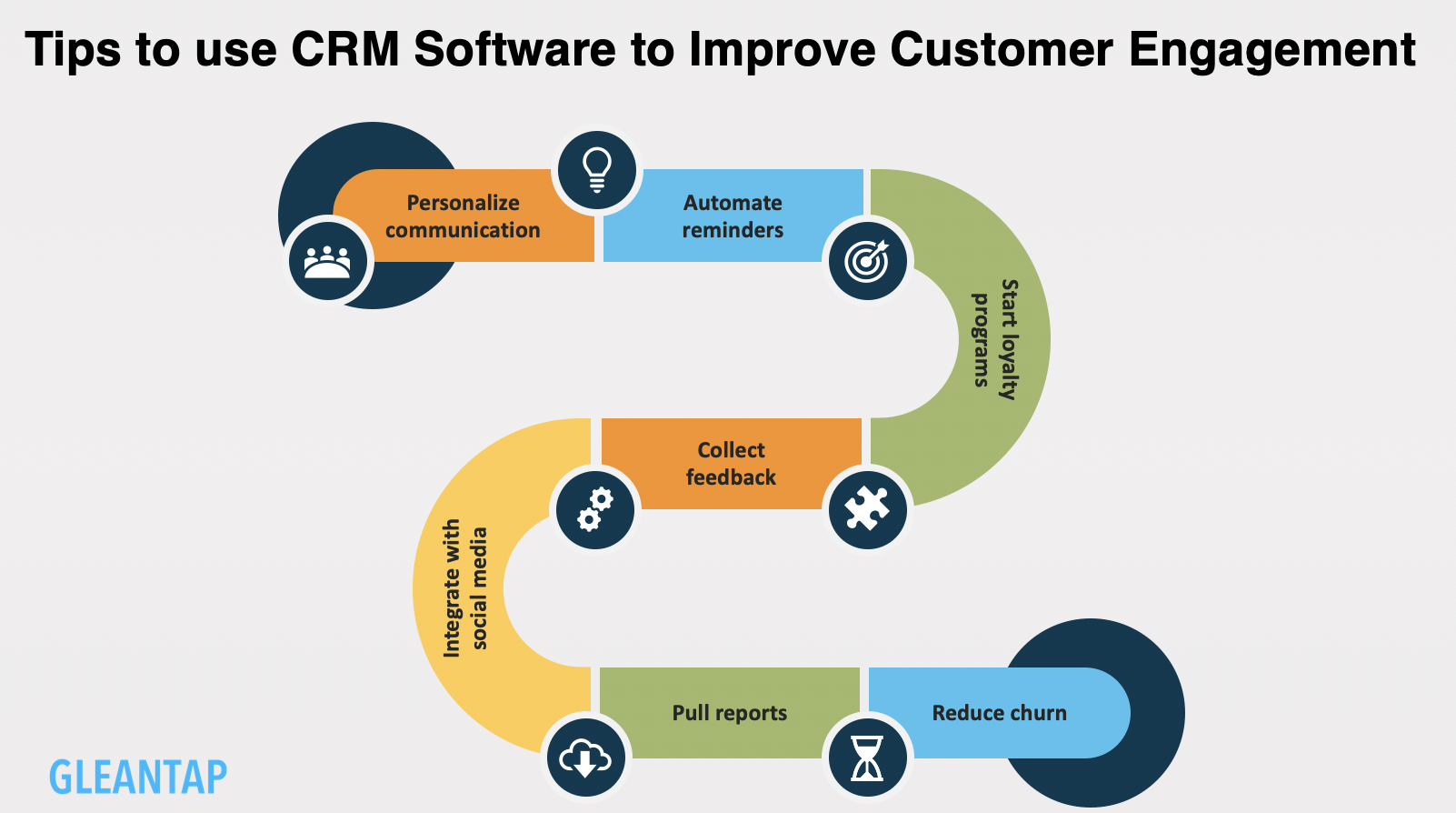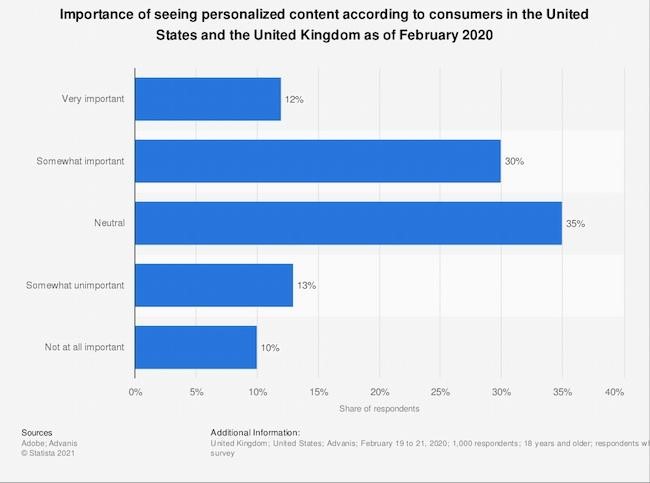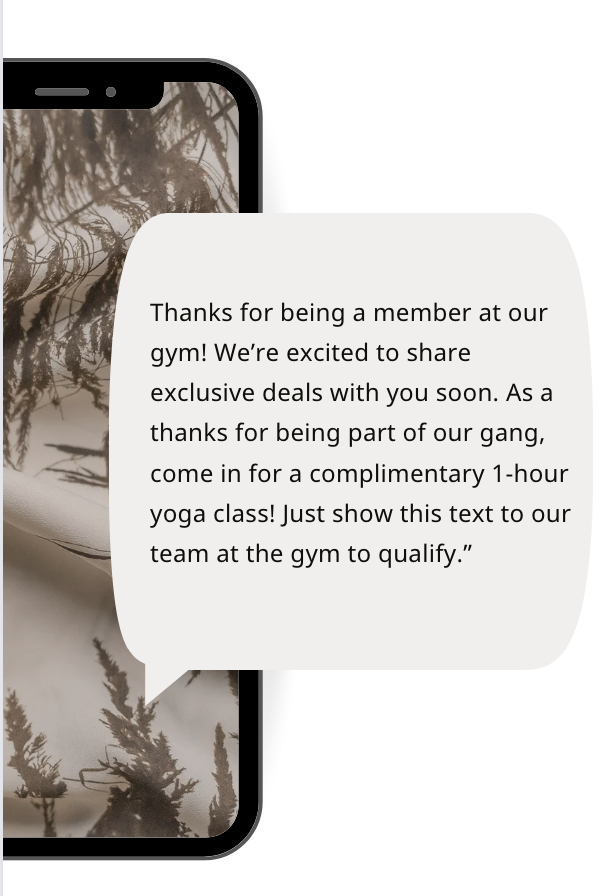Many organizations feel that staying aligned with the needs and high expectations of today’s customers is their most challenging task. In the modern world, customers have learned to expect a very high level of satisfaction. And today, they now expect a personalized experience too. Each positive experience builds toward a positive relationship between brand and buyer, which is why customer relationship management (CRM) tools have become pivotal for companies.
They want to know their customers and serve them with a tailored experience each time. Companies want to build relationships and share information with customers in an automated fashion—Ergo, CRM software.
What is CRM software?
In its simplest form, CRM software is a database in which companies store customer data. This could be anything from contact information, customer interactions, and transactions as well. A CRM is there to help business owners manage customer information across several departments, including sales and marketing. It aims to help acquire, engage, and retain customers for the long term.
Because CRM software manages customer interactions and leads, it makes it easy for sales staff to optimize their process and helps streamline marketing campaigns. But that’s only part of what CRM automation can do for your business. Here are a few more benefits you can get out of it:
The Benefits of CRM Software for Customer Service
Improves customer service
In today’s world, buying from a brand is much more than choosing the most attractive product or service. Now, it’s about the brand, its beliefs, the quality of the product, and, most importantly, customer experience.
Did you know that 84% of businesses that actively work on improving customer experience say they see an increase in their revenue? Clearly, customer experience is crucial to a company’s success. Therefore, enhanced customer engagement should be a vital business goal for every company out there. And CRM marketing automation software can help generate this engagement with minimal effort.
Increases efficiency
CRM is predominantly an analytical, operational, communicative, and collaborative marketing tool. Business owners and staff can better analyze, communicate (personally), and capture all the details of their customers’ information and interactions.
Having all this data across one platform makes your business naturally more efficient. No matter your company’s size, CRM software can be tailored to your needs. The best part is that people across several departments (e.g., marketing, sales, operations) have access to this centralized platform that holds all the information needed to be efficient and professional with customers. CRM software is just the thing if you’re looking to fulfill needs such as data centralism and sales automation.

Allows for better communication
Many business owners, marketing professionals, and sales reps who have used CRM software have said that it’s great to streamline processes. But CRM software also helps you connect with customers on a personal level.
It’s all surrounded by communication. A CRM is built to help you keep in touch with customers using advanced automation. But the real value is that good CRM software can help you continually communicate on a personal level with them. Personalization is absolutely key to customer satisfaction. And a CRM automation tool can help you get there – quickly and efficiently.
Expands customer insights
A CRM is designed to help you manage customer data. But it also helps with marketing automation. This means that email and SMS campaigns can be sent to customers automatically. Like any other marketing campaign, each comes with analytics and insights.
Luckily, with one consolidated CRM marketing automation tool, your results and insights live within the same software. This makes reporting and analysis much more organized. More so, it makes it much more attractive to business owners because each level of marketing effort is tracked, measured, and analyzed for future campaigns.
Increases sales
We live in a world where tools are adjusted and designed to help increase actual dollar value revenue. And CRM software is no different. Let’s look at sales as an example.
CRM systems help consolidate and streamline the sales process for your staff. This means that all necessary sales documentation and communication with prospects are stored in the CRM. So, any sales team member can look up the status of a prospect. They can also add more information to each customer profile.
Soon, one prospect’s profile is so detailed and bulked out that you understand the person well. Your sales staff can now add that personal touch when closing the lead. This is the beauty of a premium CRM tool.
Resolves customer issues or complaints
CRM software is also great for communication in the sense that it can help you resolve any issues or complaints you may receive from customers.
Customer complaints aren’t something that people enjoy talking about. But it’s part of business, and there will be times when issues and complaints must be resolved. CRM tools can help with this. How?
Using help desk ticketing systems. Essentially, your team can use CRM software to prioritize customers based on the issue or complaint. Managers can also assign specific tickets to team members to help share the workload. Notes can be added to each ticket which is also helpful for documentation. It also means that notes aren’t lost in emails among various staff members. It’s all in one space for anyone who needs to access it anytime.
CRMs really help teams understand what went wrong in a scenario and resolve it promptly. Moreover, teams learn from mistakes and use this knowledge in future client interactions.
Boosts productivity and increases profitability
The final benefit is possibly one of the most vital ones – your CRM will help you boost productivity in your business. Because businesses have such varied sizes and employee numbers, it’s crucial that owners and staff use their time as efficiently as possible, and CRM software helps with that.
Team members spend their time doing less mundane tasks and more meaningful work because CRM tools automate routine-intensive tasks. Hence, more time is spent on customer interaction and experience – the backbone of customer retention.
As productivity grows, so does profitability. When teams are satisfying customer needs and expectations daily, naturally, those customers begin to refer that brand to friends and family. As a result, the opportunity for expansion is massive, and businesses start to soar.
Tips to use CRM Software to Improve Customer Engagement
If we look at some large and dominant brands, we can see that tactics like loyalty programs work well. But this is just one of many tips that can help boost customer engagement. Let’s look a bit deeper into them now.

Personalize communication
CRMs are an excellent tool because they help brands form personal and close relationships with their customers. Below is a graph showing the importance of seeing personalized content according to consumers in the U.S. and U.K.:

Source: HubSpot
Many advanced CRMs out there can automate marketing emails and texts to customers. For example, an automated email is sent 30 days after a customer purchases a product, providing them with a promotional discount code for a complementary product. You can use this type of automated marketing to personalize messages to customers so that you deliver relevant offers, coupons, incentives, and content to them at the right time.
Here’s a great example of a personalized email by OpenTable:

Source: HubSpot
Automate reminders
This is a great CRM marketing automation tactic because it needs some upfront, but once it’s rolling, you don’t have to put too much effort into the campaign. It merely needs maintenance and adjustment based on results.
The idea here is to automate reminders to your customers for specific things. For example, if you own a gym and want to use CRM software, automate reminders to members to remind them of your services and provide them with incentives. Below is an example:

This is a personal note from a brand. It makes customers feel appreciated and helps you maintain a good relationship with them, thereby retaining them.
Start loyalty programs
We mentioned loyalty programs a bit earlier, and they’re a great idea on any given day. But when you marry loyalty programs with a CRM, that’s magic.
Loyalty programs are about building client relationships using incentives and rewards systems. If you take the Starbucks Rewards loyalty program as an example, you’ll see that customers earn “stars” whenever they purchase. These stars can be redeemed for free food, drinks, or drink upgrades whenever they like. Starbucks has taken the loyalty program to the next level by prompting customers to earn additional stars if they purchase on specific days or complete in-app tasks.


This points-based, app-integrated loyalty program works well because customers can choose to spend points whenever they like and even use it on customized drinks. This encourages members to buy frequently, stay engaged with the brand, and use the app daily. This is an incredible way of boosting customer engagement using CRM software.
Collect feedback
Many businesses forget to use the customer feedback that they gain. But this is a grave mistake. Customer feedback is the most honest perception you’ll ever get of your brand. You want to know exactly how people feel about your business, its operations, and its service (whether that’s positive or negative).
CRMs allow you to send surveys to your already-uploaded customer base within the software. This helps you understand what your clients think of you and which areas in the business need improvement. CRMs also allow you to escalate specific issues so they’re resolved as soon as possible. Here’s an excellent example of how to deal with negative feedback as a business:

Source: Forbes
Integrate with social media
Many CRMs are now advanced enough to integrate with social media channels. This means that you can identify customer sentiment via analytics. If this sentiment is on the negative end of the scale, you can quickly respond to customers using the customer service features on your CRM software.
This is a great way to intercept issues on social media posts that may otherwise get lost in the buzz and, if not dealt with, can damage a brand’s reputation. Social media interaction also allows brands to understand what customers are looking for, what they’re happy with, and which areas they want adjusted.
Pull reports
Advanced CRM software has built-in analytics capabilities which allow you to view a summarized version of your results over a specific period. This is really powerful when you set KPIs (key performance indicators) and measure your results against them. This way, you’ll know exactly how far you are from your goal and what steps to take to get closer to it.
Reduce churn
CRM marketing automation software is also handy when trying to reduce churn because it allows you to reach customers quickly and easily. You can initiate the conversation, demonstrating that you’re invested in helping customers get what they need from your product, service, and overall brand. This avoids customers discontinuing your product or service because they feel valued by your business.
CRMs can help you keep the conversation going and the relationship building easily – because it’s automated. This gives your team members more time to focus on calls and in-person time with your customers – offering even further value and getting to know them on a personal level. After all – personalization is a crucial part of a business’s success.
Ready to learn more about implementing CRM software in your business and boosting customer engagement rapidly? If you are, look at Gleantap – CRM marketing automation software designed to help you engage and retain customers in the best way possible. Schedule a demo with our team for more information.
CRM Software: FAQs
1. What features should I look for in CRM software?
When purchasing CRM software, ensure it provides data management, task management, analytics, and automation features.
2. Can CRM software integrate with other tools?
Yes, advanced CRMs can integrate with social media management tools, eCommerce platforms, and email marketing software.
3. Is CRM software easy to use?
Most high-quality CRM software is designed to be user-friendly and easy to set up with installation guides and FAQs. CRMs like Gleantap also offer technical support and onboarding for further efficiency.
Get the full story here:
- The 10 Best CRM Softwares for Boosting Membership
- Choosing The Right Gym CRM Software For Your Club
- Customer Engagement: An Ultimate Guide


